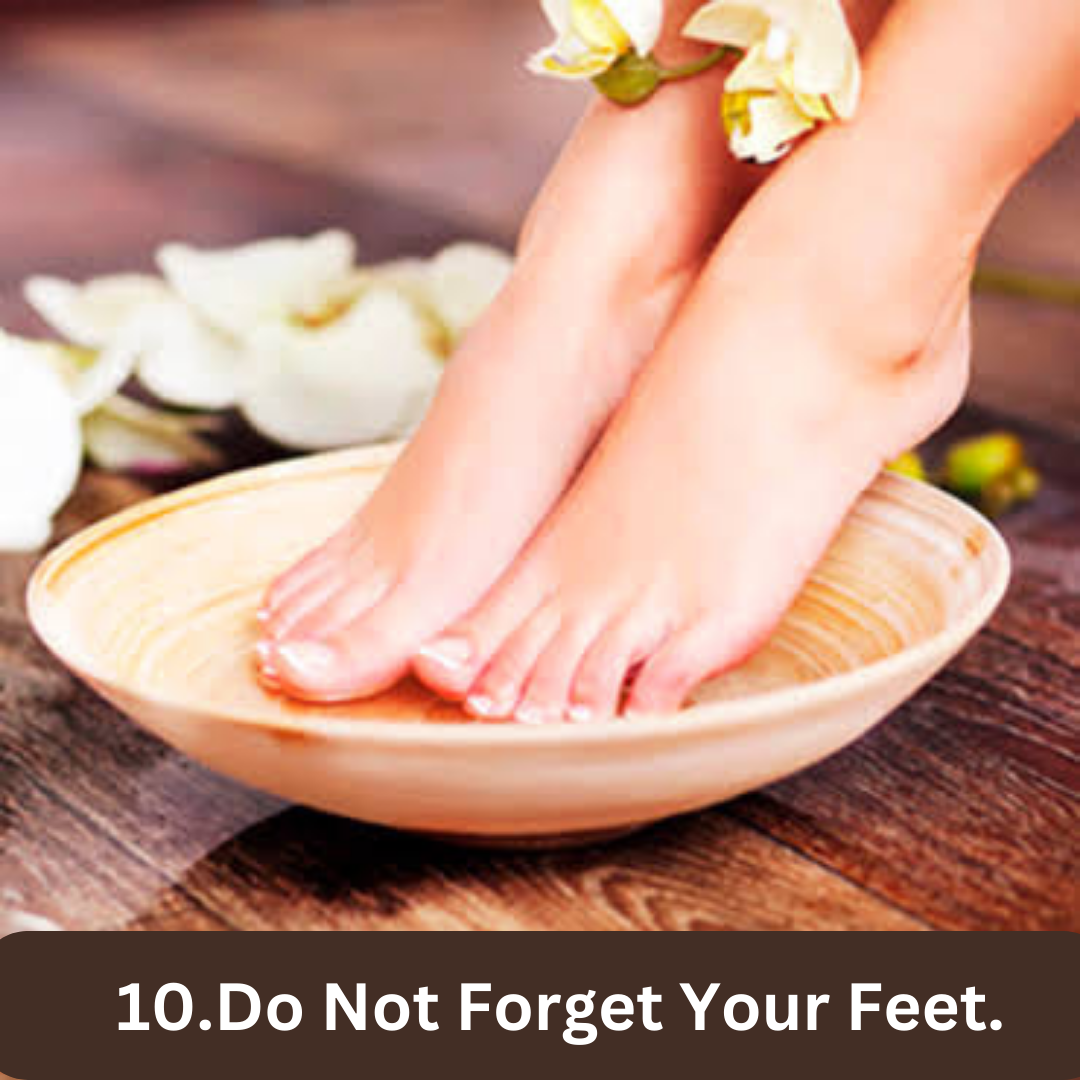How To Take Care Of Your Skin In Summer : 15 Tips For All Skin Type
Summer is a fun and exciting time of year, but it can also be tough on your skin. The hot weather, sun exposure, and humidity can all take a toll on your skin, causing it to become dry, oily, or acne-prone. To help you take care of your skin in summer, here are 15 tips for all skin types:
1.Consider Changing Your Face Wash
Changing your face wash can be beneficial for your skin, especially if you're experiencing issues like dryness, acne, or irritation. However, it's important to choose a face wash that is suitable for your skin type and concerns.
If you have dry skin, look for a face wash that is gentle and moisturizing, and avoid products that contain harsh detergents or alcohol. If you have oily or acne-prone skin, choose a face wash that contains salicylic acid or benzoyl peroxide to help unclog pores and reduce breakouts.
It's also important to pay attention to the ingredients in your face wash and avoid anything that could potentially irritate your skin. Fragrances, artificial colors, and certain preservatives can all be potential irritants.
2.Do Not Forget Sunscreen
That's a great reminder! Sunscreen is an essential product for protecting your skin from harmful UV rays, which can cause damage and increase your risk of skin cancer. It's important to wear sunscreen every day, even when it's cloudy or you're not planning to spend a lot of time outside.
When choosing a sunscreen, look for one with broad-spectrum protection, which means it protects against both UVA and UVB rays. It's also important to choose a sunscreen with an SPF (sun protection factor) of at least 30. Be sure to apply sunscreen generously and reapply every two hours or immediately after swimming or sweating.
In addition to wearing sunscreen, you can also protect your skin by seeking shade during peak sun hours, wearing protective clothing such as long-sleeved shirts and hats, and avoiding tanning beds.
3.Add A Punch Of Antioxidants
Antioxidants are important for protecting the body against the damage caused by free radicals, which can lead to inflammation, cellular damage, and diseases such as cancer and heart disease. Here are some ways to add a punch of antioxidants to your diet:
Eat a variety of colorful fruits and vegetables, as they contain a range of antioxidants. Some particularly antioxidant-rich options include berries, leafy greens, tomatoes, sweet potatoes, and peppers.
Incorporate nuts and seeds into your diet, as they contain high levels of antioxidants. Almonds, pecans, walnuts, chia seeds, and flax seeds are all great choices.
Use herbs and spices to add flavor to your meals, as many of them are rich in antioxidants. Turmeric, cinnamon, oregano, thyme, and ginger are all great options.
Choose dark chocolate with a high cocoa content, as it contains flavonoids that have antioxidant properties.
Drink green tea, which is rich in antioxidants called catechins.
Consider taking a supplement such as vitamin C, vitamin E, or beta-carotene, which are all powerful antioxidants.
4.Add Fruits And Vegetables To Your Diet
Adding fruits and vegetables to your diet is an excellent way to improve your health and wellbeing. These nutrient-rich foods provide a wide range of vitamins, minerals, fiber, and antioxidants that your body needs to function properly.
Start with small changes. Instead of trying to overhaul your entire diet all at once, start by adding one or two servings of fruits and vegetables to your meals each day.
Choose a variety of colors.
Eating a rainbow of colors ensures that you are getting a variety of nutrients. Aim for at least one serving of each color group per day (e.g. red, orange, yellow, green, blue/purple, and white).
Try new recipes.
Experiment with different ways of preparing fruits and vegetables to keep things interesting. Roasting, grilling, and sautéing are all great ways to add flavor and texture to your produce.
Make fruits and vegetables the focus of your meals.
Build your meals around produce rather than meat or carbs. For example, try a veggie stir-fry or a large salad with lots of colorful veggies.
Keep fruits and vegetables on hand.
Stock your fridge and pantry with a variety of fresh, frozen, and canned fruits and vegetables so that you always have healthy options available.
5.Keep Yourself Hydrated
Staying hydrated is essential for maintaining good health and well-being. Water is an essential nutrient that our bodies need to function properly, and it plays a critical role in many bodily functions such as digestion, circulation, and temperature regulation. Here are some tips for keeping yourself hydrated:
Drink plenty of water:
The easiest way to stay hydrated is to drink plenty of water throughout the day. The amount of water you need depends on your age, gender, activity level, and other factors, but a general guideline is to drink at least 8-10 glasses (64-80 ounces) of water per day.
Eat hydrating foods:
Many fruits and vegetables are high in water content and can help you stay hydrated. Examples include watermelon, cucumbers, strawberries, celery, lettuce, and spinach.
Avoid or limit dehydrating beverages:
Beverages like coffee, tea, and alcohol can dehydrate you if consumed in excess. Limit your intake of these beverages, or make sure to drink extra water to compensate.
Carry a water bottle with you:
Keeping a water bottle with you throughout the day can make it easier to stay hydrated. Try to refill your water bottle regularly to ensure you have a steady supply of water.
Listen to your body:
Pay attention to your body's thirst signals and drink water whenever you feel thirsty. Additionally, if you're sweating heavily due to exercise or hot weather, make sure to drink extra water to compensate for the fluid loss.
6.Go Easy On Makeup
Makeup is a form of self-expression and can be used to enhance one's natural features, boost confidence, and create different looks. However, it's important to remember that makeup should be used to enhance your natural beauty and not to mask it.
Wearing too much makeup can lead to skin problems such as clogged pores, breakouts, and premature aging. In addition, some people may feel pressured to wear makeup to conform to societal standards of beauty, which can negatively impact their self-esteem.
It's important to find a balance that works for you, where you feel comfortable and confident in your own skin. You can experiment with different makeup looks and products, but it's important to listen to your body and know when it's time to take a break or try a more natural approach.
Overall, wearing makeup is a personal choice, and there's no right or wrong way to do it. The key is to use it in moderation and remember that your natural beauty shines through with or without it.
7.Skin Exfoliation
Exfoliation refers to the process of removing dead skin cells from the surface of the skin, usually by using a scrub or chemical exfoliant. Exfoliation can help to unclog pores, improve skin texture and tone, and promote cell turnover.
There are several ways to exfoliate the skin, including physical exfoliation using scrubs or brushes, chemical exfoliation using acids or enzymes, and mechanical exfoliation using microdermabrasion or dermaplaning. It's important to choose an exfoliation method that is appropriate for your skin type and to avoid over-exfoliating, which can lead to irritation and sensitivity.
Regular exfoliation can be a beneficial part of a skincare routine, but it's important to also use sunscreen and moisturizer to protect and nourish the skin.
8.Skin Toning Tips
Protect your skin from the sun: UV rays can damage the skin and cause dark spots, hyperpigmentation, and uneven skin tone. Always wear sunscreen with at least SPF 30 and reapply it every two hours if you are outside.
Exfoliate regularly:
Dead skin cells can make your skin look dull and uneven. Regular exfoliation can help remove dead skin cells and reveal brighter, smoother skin. Use a gentle exfoliator once or twice a week.
Use skin-brightening products:
Look for products that contain vitamin C, niacinamide, or kojic acid, which can help brighten the skin and reduce the appearance of dark spots.
Moisturize:
Keeping your skin hydrated is important for maintaining an even skin tone. Choose a moisturizer that is suitable for your skin type and use it twice a day.
Eat a healthy diet:
Eating a balanced diet that includes fruits, vegetables, and whole grains can help improve your skin's health and appearance.
Manage stress:
Stress can cause inflammation in the body, which can lead to skin issues. Take steps to manage stress, such as exercise, meditation, or deep breathing.
Get enough sleep:
Lack of sleep can make your skin look tired and dull. Aim for 7-9 hours of sleep each night to help your skin look its best.
Use a toner:
Incorporating a toner into your skincare routine can help balance your skin's pH levels and improve its texture. Look for a toner that contains ingredients like witch hazel or salicylic acid, which can help unclog pores and brighten the skin.
Don't pick at your skin:
Picking at blemishes or scabs can cause inflammation and further damage to the skin, leading to dark spots and uneven skin tone. Resist the urge to pick and allow your skin to heal on its own.
Consider professional treatments:
If you have stubborn dark spots or uneven skin tone, consider professional treatments such as chemical peels, microdermabrasion, or laser therapy. These treatments can help improve the appearance of your skin and even out your skin tone.
Be mindful of your skincare ingredients: Some skincare ingredients, such as retinol or alpha hydroxy acids (AHAs), can increase your skin's sensitivity to the sun and cause further damage if not used properly. Always follow the instructions on the label and use these ingredients in moderation.
Stay hydrated:
Drinking plenty of water can help keep your skin hydrated and promote a more even skin tone. Aim to drink at least 8 glasses of water per day.
9.Upgrade your moisturizer.
It's essential to update your moisturizer from time to time because your skin's needs can change due to various factors, such as aging, hormonal changes, weather conditions, lifestyle, and environmental factors.
For instance, if you're experiencing dryness or sensitivity, you may need a more hydrating and soothing moisturizer that contains ingredients like hyaluronic acid, ceramides, or aloe vera. On the other hand, if you're dealing with oily skin or acne, you may prefer a lightweight, oil-free moisturizer that won't clog your pores or cause breakouts.
Moreover, updating your moisturizer can also help you benefit from the latest advancements in skincare technology and formulations, such as antioxidants, peptides, probiotics, or plant-based extracts, which can nourish, protect, and rejuvenate your skin.
10.Do Not Forget Your Feet
You're absolutely right! Feet are one of the most important parts of our body that we often tend to neglect. They carry our weight throughout the day and allow us to move around freely, so it's essential to take care of them.
Keep your feet clean and dry.
Wash them daily with soap and water, and dry them thoroughly afterward, especially between your toes.
Trim your toenails regularly.
Cut them straight across and avoid cutting too close to the skin or rounding the edges, which can cause ingrown toenails.
Wear comfortable shoes that fit well.
Shoes that are too tight or too loose can cause blisters, calluses, and other foot problems. Choose shoes that provide good support, and avoid wearing high heels for extended periods.
Moisturize your feet regularly.
Stretch your feet and ankles regularly.
This can help improve circulation and prevent stiffness and soreness.
11.Get Enough Exercise
Getting enough exercise is essential for maintaining good health and well-being. Regular physical activity can help you manage your weight, reduce your risk of chronic diseases such as heart disease, stroke, and diabetes, improve your mental health, and increase your overall quality of life.
The American Heart Association recommends that adults engage in at least 150 minutes of moderate-intensity aerobic activity or 75 minutes of vigorous-intensity aerobic activity per week, spread out over at least three days per week. Additionally, they suggest that adults perform muscle-strengthening activities at least two days per week.
It's important to find physical activities that you enjoy and that fit into your schedule. This could include activities such as walking, jogging, swimming, cycling, dancing, or strength training. It's also important to start slowly and gradually increase the intensity and duration of your exercise over time.
If you have any health concerns or medical conditions, it's important to consult with your doctor before starting a new exercise program. Additionally, be sure to stay hydrated, wear appropriate clothing and shoes, and listen to your body to prevent injury.
12.Don’t Cut Down Your Resting Time
When you cut down on your resting time, you put yourself at risk for a variety of health problems, including fatigue, decreased cognitive function, and increased stress levels. Additionally, insufficient rest can compromise your immune system, leaving you vulnerable to illness and disease.
So, it's important to prioritize your rest and make sure you're getting enough sleep each night. Adults typically need 7-9 hours of sleep per night to function optimally, while children and teenagers need even more. If you're having trouble sleeping or finding it hard to make time for rest, consider making some changes to your daily routine, such as setting a consistent sleep schedule, avoiding caffeine and electronics before bed, and practicing relaxation techniques like meditation or deep breathing. By prioritizing your rest, you'll be better equipped to tackle the challenges of daily life and maintain your overall health and well-being.
13.Do Not Forget The Eye Area
You are correct in emphasizing the importance of not forgetting the eye area in your skincare routine. The skin around the eyes is thinner and more delicate than the skin on other areas of the face, and it is also more prone to showing signs of aging, such as fine lines, wrinkles, and dark circles.
To take care of the eye area, you should use products that are specifically formulated for this delicate area. Look for eye creams or serums that contain ingredients like hyaluronic acid, retinol, vitamin C, and peptides, which can help to hydrate, brighten, and firm the skin around the eyes.
When applying eye cream or serum, be gentle and use your ring finger, which is the weakest finger, to avoid pulling or tugging at the skin. Apply the product in a gentle tapping motion, starting from the inner corner of the eye and working your way outwards.
In addition to using eye cream or serum, you can also take other steps to care for the eye area, such as getting enough sleep, wearing sunglasses to protect against UV rays, and avoiding rubbing or scratching the eyes. By taking care of the eye area, you can help to keep it looking youthful and vibrant.
14.Cool Off With A Face Mist
A face mist can be a great way to cool off during hot weather or refresh your skin throughout the day. Face mists come in different formulations and can provide a variety of benefits, from hydrating and soothing the skin to setting makeup.
Choose the right mist for your skin type:
Different mists have different ingredients and formulations, so it's important to choose one that's suitable for your skin type. If you have dry skin, choose a mist that's hydrating and contains ingredients like hyaluronic acid or aloe vera. If you have oily skin, look for a mist that's lightweight and contains ingredients like witch hazel or tea tree oil.
Hold the mist at arm's length:
Hold the mist bottle about an arm's length away from your face and spray it lightly. Don't spray it too close to your face as this can make your skin feel wet or even cause your makeup to run.
Close your eyes and mouth:
When spraying the mist, it's important to close your eyes and mouth to avoid getting the mist in them. You can also cover your hair with a towel or scarf if you don't want to get it wet.
Pat the mist into your skin:
After spraying the mist, use your fingers to gently pat it into your skin. This helps to ensure that the mist is evenly distributed and absorbed by your skin.
Use it throughout the day:
You can use a face mist throughout the day to refresh your skin and keep it hydrated. It's particularly useful during hot weather or if you're spending a lot of time in air-conditioned environments.
15.Always Take Cold Water Showers
Whether or not you should take cold water showers depends on your personal preference and health needs. Cold water showers have been found to have some health benefits, such as boosting circulation, improving skin and hair health, and increasing energy levels. However, they may not be suitable for everyone, especially those with certain health conditions, such as Raynaud's disease or low blood pressure.
It's also worth noting that cold water showers can be uncomfortable, especially during the winter months, and may not be as effective at removing dirt and grime as hot water. Additionally, if you're trying to relax or unwind after a long day, a cold water shower may not be the most relaxing option.
Ultimately, whether or not you should take cold water showers is up to you and your personal preferences. If you do decide to take cold water showers, it's important to ease into them gradually and listen to your body to ensure you don't experience any adverse effects.




















.jpg)
